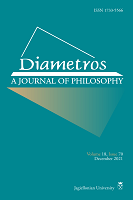Organ Transplant in Present-Day Japan: Reasons behind Low Numbers of Deceased Donors
Organ Transplant in Present-Day Japan: Reasons behind Low Numbers of Deceased Donors
Author(s): Justyna Czekajewska, Aleksandra Jaworowicz-ZimnySubject(s): Ethics / Practical Philosophy, Existentialism, East Asian Philosophy, Health and medicine and law
Published by: Instytut Filozofii Uniwersytetu Jagiellońskiego
Keywords: transplantation; brain death; Japan; JOTN; philosophical monism; Shinto; gotai manzoku tradition;
Summary/Abstract: According to the International Register of Organ Donation and Transplantation, Japan is one of the countries with the lowest number of registered deceased donors. In 2019, Japan was ranked 61st out of 70 countries. The authors of this article have decided to explore the reasons for this phenomenon. In the first part of the work, religious influences (Shinto and Buddhism), the tradition of gotai manzoku, the importance of altruism and the family in the perception of death and organ transplantation by the Japanese are considered. The second part of the article presents the arguments of Alan Shewmon, who believes that brain death is not death in the biological sense. Undermining the brain’s death criterion raises doubts concerning death of patients in irreversible coma, what in result discourages transplantology in Japan. In the third part, the authors compare the results of JOTN, IRODaT and the Fact Book of Organ Transplantation 2018 in Japan from 2010 to 2018. The aim of the article is to explain the cultural determinants of transplantology in Japan, taking into account the influence of philosophical and bioethical aspects of human death.
Journal: Diametros
- Issue Year: 18/2021
- Issue No: 70
- Page Range: 2-25
- Page Count: 24
- Language: English

